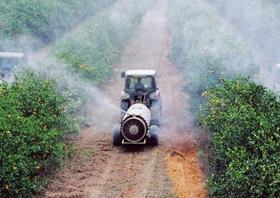
A leading UK-based agricultural figure has urged global leaders meeting in Copenhagen for the Climate Change Summit to recognise the role of innovative crop production tools in meeting the challenges of climate change and food security.
Dominic Dyer, chief executive of the Crop Protection Association (CPA), said that the benefit of modern crop protection products, including pesticides, offered net CO2 savings.
Mr Dyer highlighted a recent report by Cranfield University, commissioned by the CPA, that found pesticides were a relatively minor contributor to overall greenhouse gas emissions – accounting for just 3 per cent of the 100-year global warming potential of crop production.
During the study, University researchers also found that the yield increases attributed to pesticide use allow at least a tenfold saving in CO2 equivalent per hectare, relative to the CO2 emitted as a consequence of producing pesticides.
'Agriculture is in the front line of climate change,' said My Dyer. 'Recent headlines have questioned whether claims of man-made global warming are exaggerated, but the sceptics need look no further than the pressures facing agricultural production worldwide for evidence that climate change is not only happening, but presents a serious threat to our ability to increase food supplies in line with a growing world population.
'It may be counter-intuitive for many, but there is firm evidence to suggest that the adoption of more intensive farming practices, including the responsible use of modern crop protection products, offers the most effective route to mitigate and cope with the effects of climate change,' he added.






No comments yet